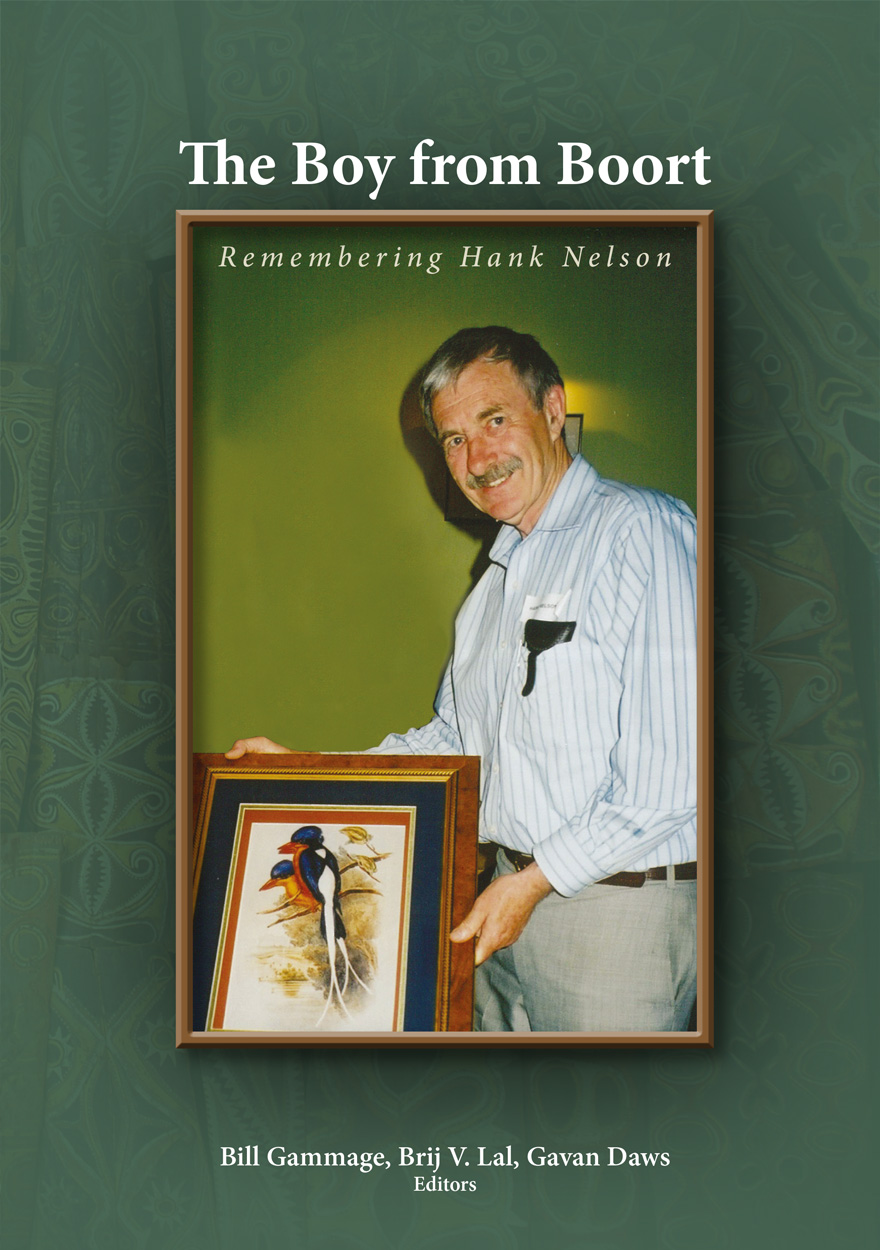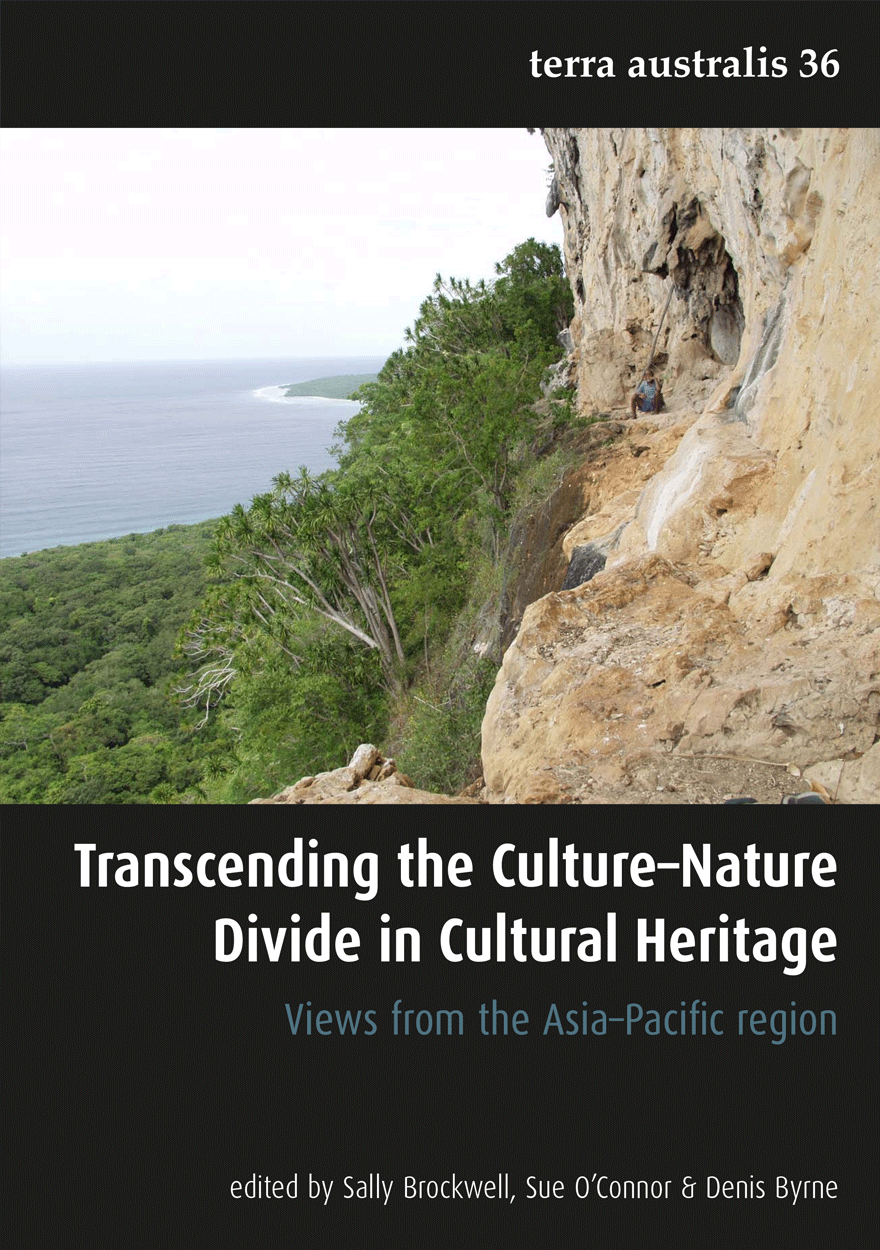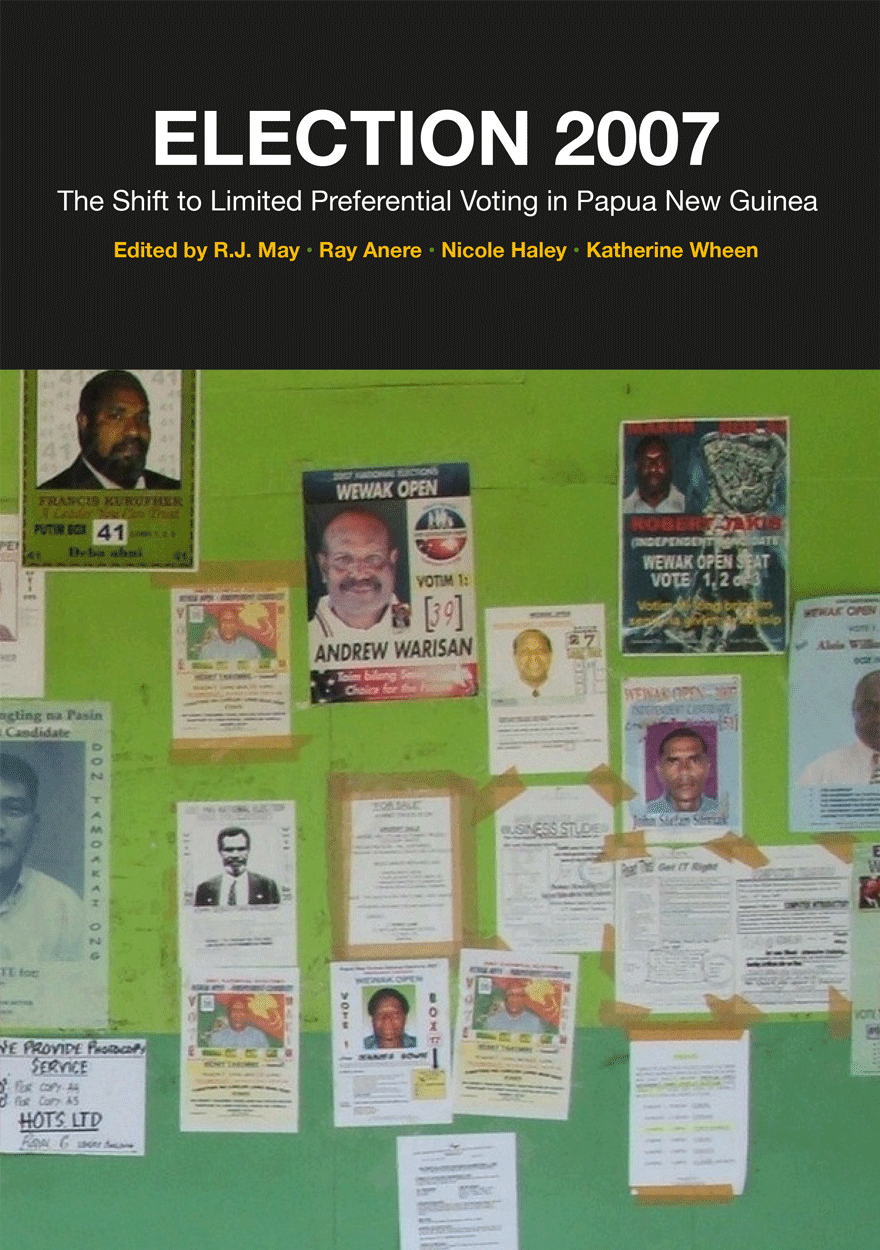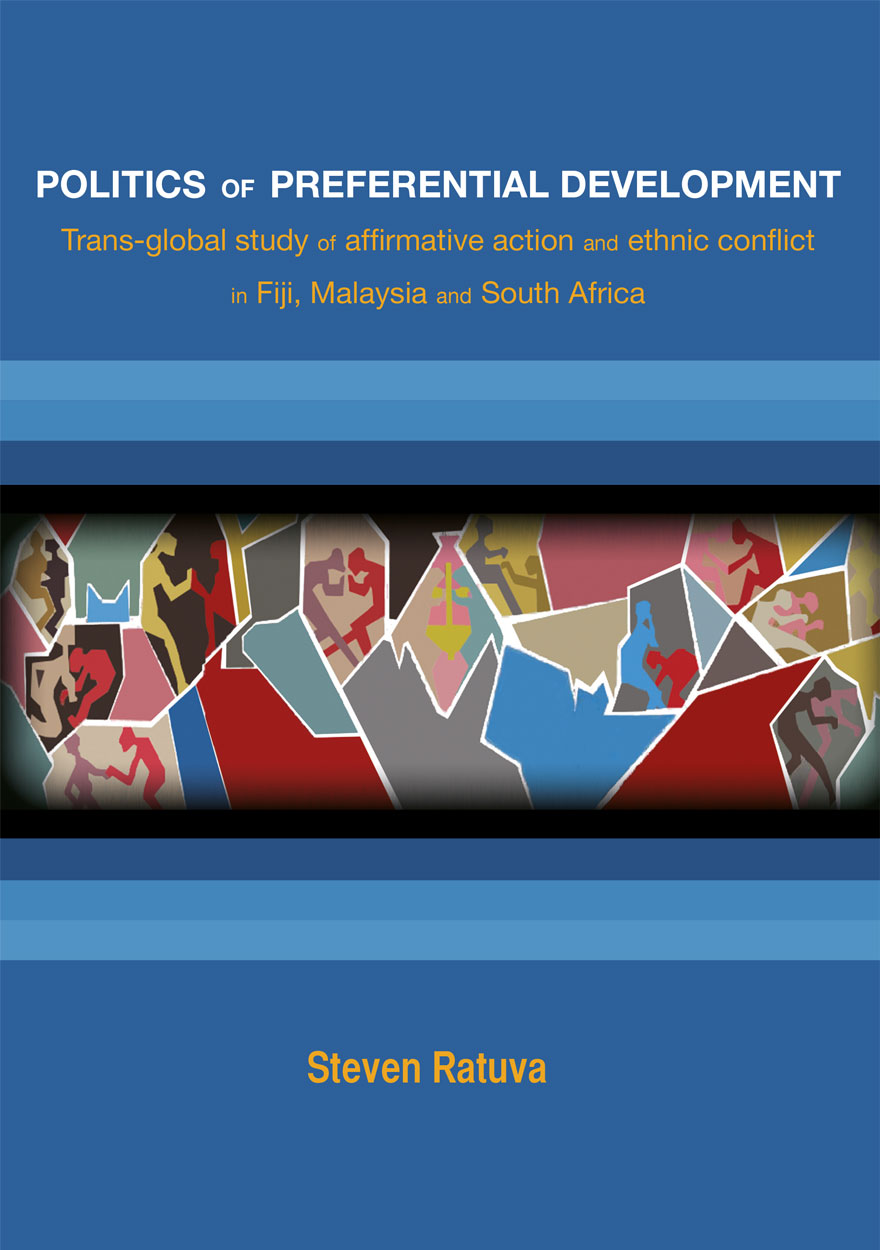Search titles
Displaying results 71 to 80 of 202.

The Boy from Boort »
Remembering Hank Nelson
Edited by: Bill Gammage, Brij V. Lal, Gavan Daws
Publication date: July 2014
Hank Nelson was an academic, film-maker, teacher, graduate supervisor and university administrator. His career at The Australian National University (ANU) spanned almost 40 years of notable accomplishment in expanding and deepening our understanding of the history and politics of Papua New Guinea, the experience of Australian soldiers at war, bush schools and much else. This book is a highly readable tribute to him, written by those who knew him well, including his students, and also contains wide-ranging works by Hank himself. –Professor Stewart Firth, ANU.

Fire Mountains of the Islands »
A History of Volcanic Eruptions and Disaster Management in Papua New Guinea and the Solomon Islands
Authored by: R. Wally Johnson
Publication date: December 2013
Volcanic eruptions have killed thousands of people and damaged homes, villages, infrastructure, subsistence gardens, and hunting and fishing grounds in Papua New Guinea and the Solomon Islands. The central business district of a town was destroyed by a volcanic eruption in the case of Rabaul in 1994. Volcanic disasters litter not only the recent written history of both countries—particularly Papua New Guinea—but are recorded in traditional stories as well. Furthermore, evidence for disastrous volcanic eruptions many times greater than any witnessed in historical times is to be found in the geological record. Volcanic risk is greater today than at any time previously because of larger, mainly sedentary populations on or near volcanoes in both countries. An attempt is made in this book to review what is known about past volcanic eruptions and disasters with a view to determining how best volcanic risk can be reduced today in this tectonically complex and volcanically threatening region.

Prehistoric Marine Resource Use in the Indo-Pacific Regions »
Edited by: Rintaro Ono, Alex Morrison, David Addison
Publication date: December 2013
Although historic sources provide information on recent centuries, archaeology can contribute longer term understandings of pre-industrial marine exploitation in the Indo-Pacific region, providing valuable baseline data for evaluating contemporary ecological trends. This volume contains eleven papers which constitute a diverse but coherent collection on past and present marine resource use in the Indo-Pacific region, within a human-ecological perspective. The geographical focus extends from Eastern Asia, mainly Japan and Insular Southeast Asia (especially the Philippines) to the tropical Pacific (Micronesia, Melanesia, and Polynesia) and outlying sites in coastal Tanzania (Indian Ocean) and coastal California (North Pacific).
The volume is divided thematically and temporally into four parts: Part 1, Prehistoric and historic marine resource use in the Indo-Pacific Region; Part 2, Specific marine resource use in the Pacific and Asia; Part 3, Marine use and material culture in the Western Pacific; and Part 4, Modern marine use and resource management.

Transcending the Culture–Nature Divide in Cultural Heritage »
Views from the Asia–Pacific region
Edited by: Sally Brockwell, Sue O'Connor, Denis Byrne
Publication date: December 2013
While considerable research and on-ground project work focuses on the interface between Indigenous/local people and nature conservation in the Asia-Pacific region, the interface between these people and cultural heritage conservation has not received the same attention. This collection brings together papers on the current mechanisms in place in the region to conserve cultural heritage values. It will provide an overview of the extent to which local communities have been engaged in assessing the significance of this heritage and conserving it. It will address the extent to which management regimes have variously allowed, facilitated or obstructed continuing cultural engagement with heritage places and landscapes, and discuss the problems agencies experience with protection and management of cultural heritage places.

Watriama and Co »
Further Pacific Islands Portraits
Authored by: Hugh Laracy
Publication date: October 2013
Watriama and Co (the title echoes Kipling’s Stalky and Co!) is a collection of biographical essays about people associated with the Pacific Islands. It covers a period of almost a century and a half. However, the individual stories of first-hand experience converge to some extent in various ways so as to present a broadly coherent picture of ‘Pacific History’. In this, politics, economics and religion overlap. So, too, do indigenous cultures and concerns; together with the activities and interests of the Europeans who ventured into the Pacific and who had a profound, widespread and enduring impact there from the nineteenth century, and who also prompted reactions from the Island peoples. Not least significant in this process is the fact that the Europeans generated a ‘paper trail’ through which their stories and those of the Islanders (who also contributed to their written record) can be known. Thus, not only are the subjects of the essays to be encountered personally, and within a contextual kinship, but the way in which the past has shaped the future is clearly discernible. Watriama himself features in various historical narratives. So, too, certain of his confrères in this collection, which is the product of several decades of exploring the Pacific past in archives, by sea, and on foot through most of Oceania.

Election 2007 »
The Shift to Limited Preferential Voting in Papua New Guinea
Edited by: R.J. May, Ray Anere, Nicole Haley, Katherine Wheen
Publication date: September 2013
Papua New Guinea’s general election in 2007 attracted particular interest for several reasons. Not only did it follow what was widely acknowledged as the country’s worst election ever, in 2002 (in which elections in six of the country’s 109 electorates were declared to be ‘failed elections’), it was the first general election to be held under a new limited preferential voting system. It also followed the first full parliamentary term under the Organic Law on the Integrity of Political Parties and Candidates, which had been introduced in 2001 in an attempt to strengthen political parties and create a greater degree of stability in the national parliament, and was the first to embrace a ‘whole-of-government’ approach to electoral administration, through an Interdepartmental Electoral Committee. This volume provides an analysis of the 2007 election, drawing on the work of a domestic monitoring team organized through the National Research Institute, and several visiting scholars. It addresses key issues such as voter education, electoral administration, election security, the role of political parties, women as candidates and voters, the shift to limited preferential voting, and HIV transmission, and provides detailed accounts of the election in a number of open and provincial electorates. It is generally agreed that the election of 2007 was an improvement on that of 2002. But problems of electoral administration and voting behaviour remain. These are identified in this volume, and recommendations made for electoral reform.

Putting Citizens First »
Engagement in Policy and Service Delivery for the 21st Century
Publication date: August 2013
This book explores the ways in which governments are putting citizens first in their policy-making endeavours. Making citizens the focus of policy interventions and involving them in the delivery and design is for many governments a normative ideal; it is a worthy objective and sounds easy to achieve. But the reality is that putting citizens at the centre of policy-making is hard and confronting. Are governments really serious in their ambitions to put citizens first? Are they prepared for the challenges and demands such an approach will demand? Are they prepared to commit the time and resources to ensure genuine engagement takes place and that citizens’ interests are considered foremost? And, more importantly, are governments prepared for the trade-offs, risks and loss of control such citizen-centric approaches will inevitably involve?
The book is divided into five parts:
setting the scene: The evolving landscape for citizen engagement
drivers for change: Innovations in citizen-centric governance
case studies in land management and Indigenous empowerment
case studies in fostering community engagement and connectedness
case studies engaging with information technology and new media.
While some chapters question how far governments can go in engaging with citizens, many point to successful examples of actual engagement that enhanced policy experiences and improved service delivery. The various authors make clear that citizen engagement is not restricted to the domain of service delivery, but if taken seriously affects the ways governments conduct their activities across all agencies. The implications are enormous, but the benefits to public policy may be enormous too.

Politics of preferential development »
Trans-global study of affirmative action and ethnic conflict in Fiji, Malaysia and South Africa
Authored by: Steven Ratuva
Publication date: July 2013
The book is a critical examination of affirmative action, a form of preferential development often used to address the situation of disadvantaged groups. It uses a trans-global approach, as opposed to the comparative approach, to examine the relationship between affirmative action, ethnic conflict and the role of the state in Fiji, Malaysia and South Africa. While affirmative action has noble goals, there are often intervening political and ideological factors in the form of ethno-nationalism and elite interests, amongst others, which potentially undermine fair distribution of affirmative action resources. The book examines the affirmative action philosophies and programs of the three countries and raises pertinent questions about whether affirmative action has led to equality, social justice, harmony and political stability and explores future possibilities.
Steven Ratuva provides a brilliant critical study, not just of affirmative action policy and practice in three very different postcolonial contexts, but of the very complex matters of principle, justification and ideology that are involved more generally. It is an invaluable contribution to the literature on this important topic.
— Dr Stephanie Lawson, Professor of Politics and International Relations, Macquarie University.
Scholarly and provocative, Steven Ratuva’s Politics of Preferential Development is an original and insightful comparative contribution to the growing literature on affirmative action around the world.
— Dr Ralph Premdas, Professor of Public Policy, University of West Indies; Former Professor, University of California Berkeley and University of Toronto.

France in the South Pacific »
Power and Politics
Authored by: Denise Fisher
Publication date: May 2013
France is a Pacific power, with three territories, a military presence, and extensive investments. Once seen by many as a colonial interloper in the South Pacific, by the early 2000s, after it ended nuclear testing in French Polynesia and negotiated transitional Accords responding to independence demands in New Caledonia, France seems to have become generally accepted as a regional partner, even if its efforts concentrate on its own territories rather than the independent island states.
But France’s future in the region has yet to be secured. By 2014 it is to have handed over a set of agreed autonomies to the New Caledonian government, before an independence referendum process begins. Past experience suggests that a final resolution of the status of New Caledonia will be divisive and could lead once again to violent confrontations. In French Polynesia, calls continue for independence and for treatment under UN decolonisation procedures, which France opposes. Other island leaders are watching, so far putting faith in the Noumea Accord, but wary of the final stages. The issues and possible solutions are more complex than the French Pacific island population of 515,000 would suggest.
Combining historical background with political and economic analysis, this comprehensive study offers vital insight into the intricate history – and problematic future – of several of Australia’s key neighbours in the Pacific and to the priorities and options of the European country that still rules them. It is aimed at policy-makers, scholars, journalists, businesspeople, and others who want to familiarise themselves with the issues as France’s role in the region is redefined in the years to come.

Securing Village Life »
Development in Late Colonial Papua New Guinea
Authored by: Scott MacWilliam
Publication date: May 2013
Securing Village Life: Development in Late Colonial Papua New Guinea examines the significance for post-World War II Australian colonial policy of the modern idea of development. Australian officials emphasised the importance of bringing development for both the colony of Papua and the United Nations Trust Territory of New Guinea. The principal form that development took involved securing smallholders against the tendencies of other forms of capitalist development that might have separated households from land. In order to make household occupation of their holdings more secure and at higher standards of living, the colonial administration coordinated and supervised increases in production of crops and other agricultural produce.
Contrary to suggestions that colonial policy and practice ignored indigenous agriculture and concentrated on plantation crops grown by international firms and expatriate owner-occupiers, the study shows how the main focus was instead upon increasing smallholder output for immediate consumption as well as for local and international markets. Simultaneously development stimulated increases in consumption, including of goods produced through manufacturing processes and imported into the colony.
Only as Independence approached was the pre-eminence of the earlier focus upon smallholders weakened. In part the change occurred due to the political advance of the indigenous capitalist class and their allies seeking to extend their base in largeholding agriculture and related commercial activities. This advance and the uncertainty over which form of development would prevail once indigenes held state power in post-colonial Papua New Guinea stood in marked contrast to the definite direction pursued under the colonial administration of the 1950s and early 1960s.



